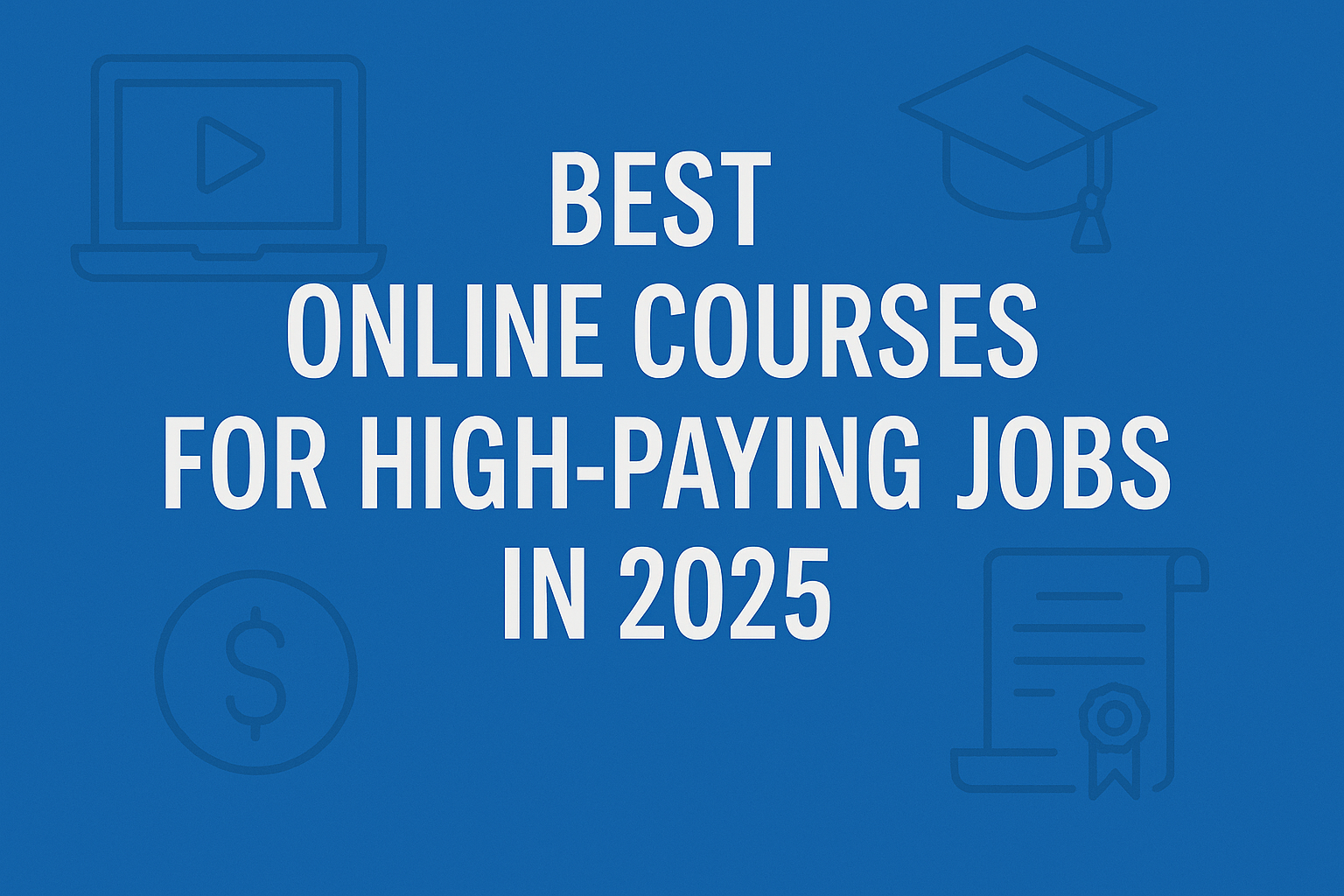Introduction
In 2025, the job market rewards skills more than ever. A focused online course can take you from beginner to job-ready in months, and many employers now hire people based on demonstrable skills and projects rather than just degrees. This article explains the ten best areas to learn online if you want a high-paying job, what makes each field valuable, where you can learn, and what salary to expect.
This guide is written in simple language so you can decide quickly which path fits your goals. I will also share tips on choosing the right course and how to study effectively so you actually get results.
1. Artificial Intelligence (AI) and Machine Learning
AI powers recommendation systems, voice assistants, fraud detection, and more. Companies use machine learning to turn data into action. Building models and solving real problems puts you in high demand.
Where to learn: Practical courses on Coursera, edX, or bootcamps. Start with Python basics, then ML and deep learning projects.
Salary (2025): $120k-$150k per year for experienced roles.
Tip: Build small projects like a movie recommender or image classifier and post them on GitHub.
2. Data Science
Data scientists clean, analyze, and visualize data to help organizations make decisions. Useful across healthcare, finance, and retail.
Where to learn: Platforms like DataCamp, Coursera, and Kaggle. Practice with Python, R, SQL, and real datasets.
Salary (2025): $100k-$140k.
Tip: Ask the right questions, create visual reports, and practice storytelling with data.
3. Cybersecurity
Protecting data is crucial. Cybersecurity experts prevent breaches, protect networks, and respond to incidents.
Where to learn: Courses teaching network security, penetration testing, and incident response.
Salary (2025): $95k-$135k.
Tip: Practice in lab environments, try capture-the-flag exercises, document all work.
4. Cloud Computing
Cloud roles include architecture, DevOps, and site reliability. Knowledge of AWS, Azure, or Google Cloud is highly valued.
Salary (2025): $110k-$145k.
Tip: Use free-tier accounts to deploy apps and automate tasks.
5. Digital Marketing
Skills in SEO, ads, content, and analytics help businesses attract and retain customers.
Salary (2025): $65k-$100k.
Tip: Run small campaigns and track results to show in your portfolio.
6. Blockchain & Distributed Ledger Tech
Blockchain secures records, improves supply chains, and is used beyond crypto. Developers are rare and well-paid.
Salary (2025): $100k-$140k.
Tip: Write simple smart contracts, explain use cases clearly.
7. Software Development (Full-Stack)
Full-stack developers can build both frontend and backend, making them valuable for startups and small teams.
Salary (2025): $95k-$130k.
Tip: Build a small web app and deploy it publicly.
8. Product Management
Product managers guide products from idea to launch, balancing user needs, business goals, and tech feasibility.
Salary (2025): $105k-$140k.
Tip: Practice writing short product plans and improving features based on user feedback.
9. UX/UI Design
Designers improve usability and visual appeal of apps and websites, reducing user frustration and increasing retention.
Salary (2025): $80k-$115k.
Tip: Redesign a simple screen, test with users, and show results.
10. Project Management (PMP, Agile, Scrum)
Projects need leaders to deliver on time and budget. Agile and Scrum skills are highly sought after.
Salary (2025): $90k-$125k.
Tip: Plan small projects, run a sprint, track progress and blockers.
Related Posts
Frequently Asked Questions (FAQs)
1. Do I need a degree to get these jobs?
No. Skills and projects often matter more than a degree.
2. How long until I can get a job?
3–12 months with consistent learning and projects.
3. Should I specialize or take many courses?
Specialize first, then expand skills later.
4. Are free courses worth it?
Yes, if they provide practical, hands-on skills.
5. How do I show my skills?
Create a portfolio website with projects and explanations.
6. Can I switch careers using online courses?
Yes. Many people transition into tech, marketing, or data careers with focused learning.
7. How do I pick the best course?
Choose courses with hands-on projects, reviews, and updated content relevant to jobs.
8. Do I need certifications?
Certifications help but projects and demonstrable skills matter more.
9. How do I stay motivated?
Set small weekly goals, join communities, and track progress publicly.
10. Can I learn part-time?
Yes. Many people learn 1–2 hours daily and complete courses within months.
Final Thoughts
The fastest route to a high-paying job is to pick one skill, learn it deeply, and show what you can do. Online learning gives you tools; projects prove your ability. Start small, complete one course, and build a portfolio that tells your story.
